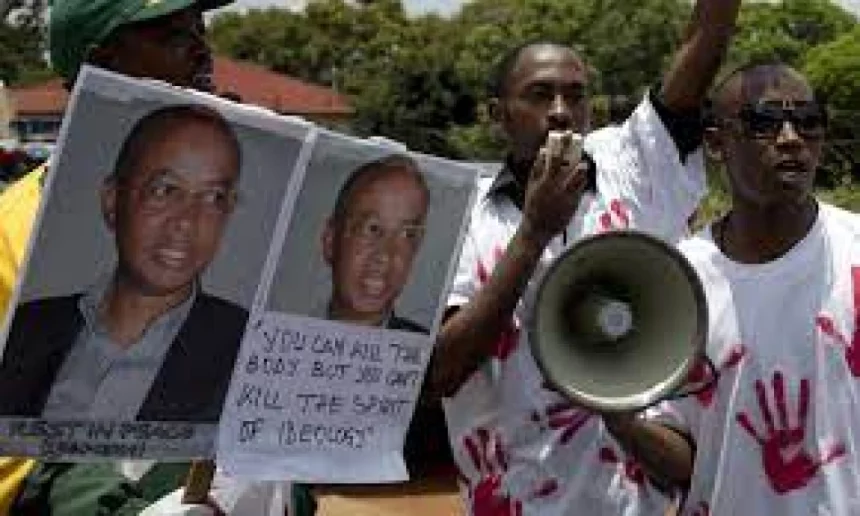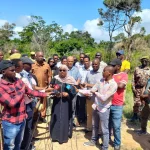Rwanda’s government has murdered, attacked and disappeared critics beyond its borders in a campaign of “extraterritorial repression” that must be challenged by the international community, Human Rights Watch (HRW) said Tuesday.
The tiny East African nation has been de facto led by Paul Kagame since the genocide in 1994, and the veteran president is seeking to extend his iron-fisted rule in elections next year.
To maintain this control, the country’s ruling Rwandan Patriotic Front had “responded forcefully and often violently” to any perceived threat to its power, HRW said in a new report.
“Such measures are not limited to critics and opponents within the country,” said the US-based rights watchdog, which interviewed over 150 people in a report covering the years since Kagame’s last election win in 2017.
The report “documented over a dozen cases of killings, kidnappings and attempted kidnappings, enforced disappearances, and physical attacks” against Rwandans in the diaspora and efforts to extradite critics overseas back home.
When contacted by AFP, Rwandan government spokeswoman Yolande Makolo said: “Human Rights Watch continues to present a distorted picture of Rwanda that only exists in their imagination.”
The HRW report was issued as the Supreme Court in London was holding three days of hearings into an appeal by the British government against a ruling blocking its plans to deport asylum seekers to Rwanda.
“These violent abuses are alarmingly frequent, particularly in African countries and in countries where the Rwandan government has an active presence, including a military presence,” the report said.
In some cases these countries “have colluded with Rwanda — or at the very least to have turned a blind eye” to these acts being carried out on their soil.
– ‘Nowhere to turn’ –
In Mozambique, where Rwandan troops are peacekeeping, HRW found that at least three Rwandans including a known critic “have been killed or disappeared in suspicious circumstances” while others have been harassed by embassy officials or escaped kidnapping attempts.
Such attacks are less common among the diaspora in Europe and North America but the fact they occur at all has contributed “to a climate of fear… even when they live thousands of kilometres away from Rwanda”.
To pressure or punish those they cannot directly reach, Kagame’s government harasses and threatens their relatives in Rwanda “in apparent retribution for their family members’ activities” abroad, HRW said.
“The targeting of relatives is a particularly vicious form of control which may explain why so much of Rwanda’s prolific extraterritorial repression — which goes far beyond high-profile cases of assassinations, assassination attempts, and disappearances — has not been visible,” it said.
HRW said countries with close ties to Rwanda, including the United Kingdom and United States, “rarely — if ever — raise human rights concerns publicly in their bilateral or multilateral engagement” with the government in Kigali.
“The failure of the UN and international community to recognise the severity and scope of the Rwandan government’s human rights violations both domestically and abroad… have left many Rwandans with nowhere to turn,” it said.
“Holding Rwanda accountable for its dismal domestic human rights record is now a necessity to tackle the government’s extraterritorial repression.”
But government spokeswoman Makolo said: “Any balanced assessment of Rwanda’s record in advancing the rights, wellbeing, and dignity of Rwandans over the past 29 years would recognise remarkable, transformational progress. Rwanda will not be deterred from this work by bad-faith actors advancing a politicised agenda.”



